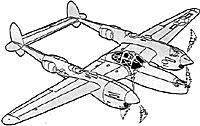 I had been a private soldier in the 112th Panzer
Brigade in September 1944. This brigade was a new unit,
made up of all kinds of people. There were few veterans. I
was a Panzergrenadier. Our job was to ride on tanks or in
trucks to protect the tanks from enemy infantry. At the time
of the Dompaire incident, I had been in combat less than a
week. Here is what I wrote in my memoirs, for my children,
back in 1985:
I had been a private soldier in the 112th Panzer
Brigade in September 1944. This brigade was a new unit,
made up of all kinds of people. There were few veterans. I
was a Panzergrenadier. Our job was to ride on tanks or in
trucks to protect the tanks from enemy infantry. At the time
of the Dompaire incident, I had been in combat less than a
week. Here is what I wrote in my memoirs, for my children,
back in 1985:
12 September was an exciting day. It was our first day with tanks, Panthers at that. The only tank I had seen closeup before then was the Russian T-34 that had provided realism to our basic training. These monsters were huge. Their 75mm guns stuck out like telephone poles. Two dozen of them drove up, and we boarded them. Then we set off in a cloud of dust. Our squad was on the second tank.
The tank commander was in his turret. He wore no rank insignia, but from the conversation he had over the radio, it was obvious that he was the tank force commander. The rattle and screeching of the tanks made understanding almost impossible. I had to lean well toward him to catch some of the words. He saw my interest, smiled and winked at me.
There were no fighter-bomnbers about all afternoon, and we reached our destination without interference. It was a shallow valley near a village, with low hills rising gently all around it. The tanks went to bivouac in the valley under the shelter of orchard trees. We dug in on the hillside about half a mile away. The night was peaceful. The next day, 13 September, was not.
The nearby village was Dompaire. I found out in my recent research that French civilians had sent word of our presence to a nearby French tank unit. The French commander, wisely not daring to risk his Sherman tanks against our Panthers, called in air strikes, which began about 1000 hours, just as we were ready to move out.
They slaughtered our tanks, attacking in waves with machine guns, rockets and napalm bombs. I shall never forget the sight of flaming tanks, of burning crew members spilling out of hatches, sliding down the side, only to lie there on the ground, a flickering heap of ashes, still and smoldering. I still remember thinking "sic transit gloria mundi" - thus goes the world's glory, a favorite saying of my Latin teacher.
He had told us that, when the Pope walks through Rome, a priest precedes him, carrying a candle. He lights it, then turns around and blows it out, saying the Latin words, sic transit gloria mundi. Struck down by a few unopposed airplanes!
The following night, we grenadiers and the few surviving tanks slunk back. We were much chastened, even though none of us grenadiers had been hurt.
That was the end of the Panther tank battalion of our brigade. The Panzer IV batallion lost many tanks that same day. After 13 September, we panzergrenadiers were simple infantry."
This action is described on pp. 199-201 of H. M. Cole's US Army in World War II, European Theater of Operations, The Lorraine Campaign, US Army Center of Military History, 1950. The French unit was CCL of the 2nd French Armored Division, Col. Langlade commanding. The attacking aircraft were from the 406th Group, stationed in Rennes.
Ed. Note: / found the above reminisce on the Internet discussion group soc. history. ww-ii. lt was posted in response to a question about the use of napalm in W.W. II I cannot verify its authenticity, but I have no reason to doubt it. I thought it was interesting enough to share with the readership. I hope you agree.
Back to Citadel Spring 1998 Table of Contents
Back to Citadel List of Issues
Back to MagWeb Master Magazine List
© Copyright 1998 by Northwest Historical Miniature Gaming Society
This article appears in MagWeb (Magazine Web) on the Internet World Wide Web. Other military history articles and gaming articles are available at http://www.magweb.com